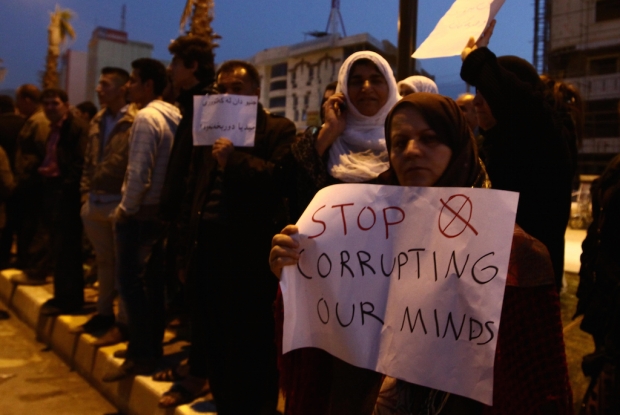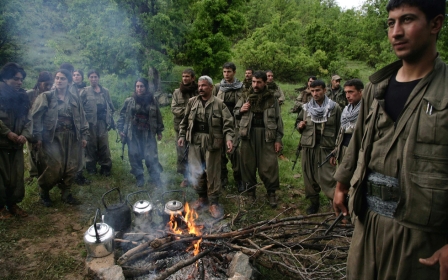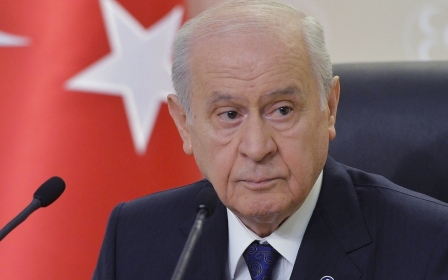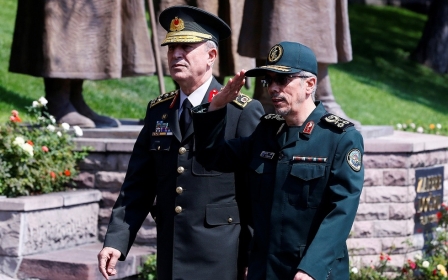Opposition TV channel in Iraqi Kurdistan stormed by gunmen
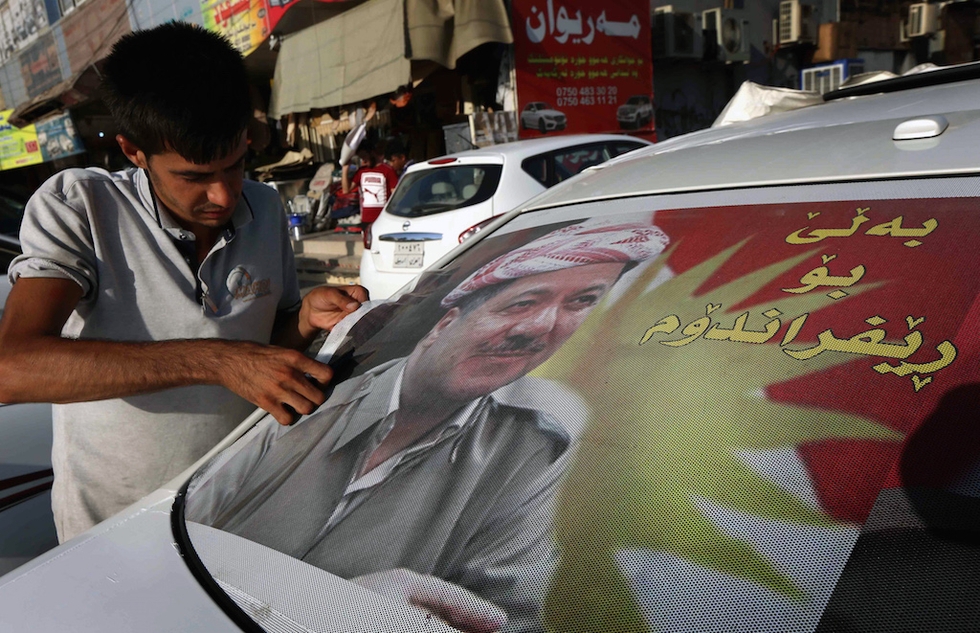
The offices of one of Iraqi Kurdistan’s leading TV channels were stormed by armed gunmen on Thursday, who raised the flag of Kurdistan on the building chanting “Yes for referendum!”
The NRT offices in Dohuk were raided by the men who threatened to set the building on fire.
span.s2 {font: 10.0px Arial; font-kerning: none; color: #6a6a6a; -webkit-text-stroke: 0px #6a6a6a}
Although there were no injuries, the incident comes after NRT's signal was blocked in Erbil by the Kurdistan Regional Government Department of Media & Information on Monday.
NRT's owner, Shaswar Abdulwahid, has been the leading figure in the "No For Now" campaign, calling for a new vote in the 25 September independence referendum in Iraqi Kurdistan.
Writing on Twitter following the Duhok incident, Abdulwahid said that "mafias" and "losers" could not intimidate his campaign:
The independence referendum, which was officially announced in June by KRG President Massoud Barzani, has been controversial in many quarters.
Although it is largely expected to be a success for the Yes vote, its implementation is likely to be far more tumultuous, and many analysts have suggested it is primarily a means of Barzani - whose mandate has been repeatedly extended to the chagrin of opposition parties - shoring up popular support for himself and the ruling Kurdistan Democratic Party (KDP).
The Committee to Protect Journalists (CPJ) on Thursday slammed the "intimidation" of NRT and called for press freedom to be respected in Kurdistan.
"Coming on the heels of this week's blocking of NRT's signal this assault on NRT's Dohuk office points to a pattern of intimidation of a broadcaster that takes a different view of the upcoming independence referendum from that of the government," CPJ Deputy Executive Director Robert Mahoney said in a statement.
"Kurdish authorities must live up to their professed commitment to press freedom by ensuring NRT can operate freely."
Sipan Amedi, head of NRT's Duhok office, claimed that the assailants had been supported by the KRG's Peshmerga military units.
"The assailants were driving vehicles belonging to the Kurdistan Region’s Ministry of Peshmerga, and threatened to set the office on fire if it is not evacuated," he said, according to NRT.
NRT has long been a thorn in the side of the KDP and the parties supporters have repeatedly criticised the channel for undermining the national unity of the autonomous statelet.
In 2013, hundreds of pro-KDP protesters demonstrated outside the offices of the channel after it broadcast a caller criticising Mustafa Barzani, father of the current president and founder of the KDP.
That same day, a bomb was set off on the roof of the channel's offices.
KDP-affiliated Peshmerga also raided NRT's offices in Erbil and Duhok in October 2015, arrested many employees and closing the channel for a number of months.
The KRG has long been seen as a secular, liberal bastion in the turbulent Middle East, particularly in comparison with the rest of Iraq from which it won official autonomy in 2005.
But collapsing oil prices, corruption and the rise of the Islamic State group have seen the statelet's fortunes wane.
On Wednesday, Barzani said that he may be willing to postpone the referendum until next year if Baghdad vowed to accept the result.
Barzani had conceded last week that he would be willing to alter the date of the poll in exchange for international support, but has now asked for Iraqi government backing.
“Such guarantees should be first from the Iraqi government and the Iraqi parliament, and then with the guarantee of the United States and the international coalition as well as European Union and the United Nations," he said in an interview with Arshaq al-Awsat newspaper on Wednesday.
“Is there a willingness to sign a document that for example on September 25, 2018 to recognise the referendum and accept its results, if the outcome was in support of independence?’ he asked.
“Such an alternative may be considered if offered.”
Barzani also said that though he believes a No vote was unlikely, he would resign should Kurds vote to remain a part of Iraq.
“If the people refused independence, I will respect the will of my people and I will devote myself to my private life.”
Middle East Eye delivers independent and unrivalled coverage and analysis of the Middle East, North Africa and beyond. To learn more about republishing this content and the associated fees, please fill out this form. More about MEE can be found here.


